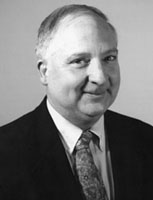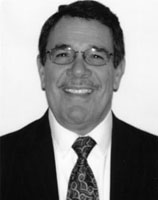 |
||
 |
 |
 |
Warren Block |
Tim Elenbaas Cadillac |
Tom Kudwa Ludington |
(click on Inductee's name to read 'description')
 |
||
 |
 |
 |
Warren Block |
Tim Elenbaas Cadillac |
Tom Kudwa Ludington |
(click on Inductee's name to read 'description')

Even though Grand Rapids South closed in 1967 members of its Varsity Club still convene periodically. It is an impressive gathering. Gerald Ford was a 1930 graduate who went on to All-American football fame at the University of Michigan and assorted additional honors. Rahn Bentley was a Golden Gloves boxing champion who played football for MSU ahead of Bubba Smith, and then finished a too-short life by coaching high school tennis at Hudsonville High School. In 1999, he was inducted into the MHSTeCA Hall of Fame.
Bentleys plaque is positioned on a wall at the Midland Community Tennis Center near that of Elliott Pearce, the highly-regarded boys and girls coach at Forest Hills Central who was inducted into the Hall of Fame in 1990. Elliott was a doubles player at Grand Rapids South who played college tennis at Ferris State University. In his senior year of high school under the old format. his doubles partner was sophomore Warren Block who. as it turns out. will shortly have his own plaque placed near Rahn's. Elliott's. and several others with whom he has come in contact on various tennis courts over the years.
For instance, in his junior and senior years. Warren competed with one or another Bentley (Rahn's brothers, Mark and Dave) against a doubles team from Grandville which included Larry Nicer who, in turn. went on to enjoy a stellar tennis coaching career at Traverse City Central that culminated in his induction in Rahn's Hall of Fame class. In other words. there are four Hall of Fame tennis coaches under discussion here. There would be a fifth. Jerry Bentley. who didn't play for South (the school had closed by the time he played high school tennis), but nevertheless went on to a Hall of Fame tennis coaching career at Grand Rapids Creston. Jerry was inducted in 2000.
As noted Grand Rapids poet Clem Block once wrote: "Life is a garden in which we all toil/What we produce depends on our soil." Indeed, the soil around Grand Rapids South must have been pretty fertile. Warren grew up across from Garfield Park where the Bentleys played on weekends. He entered a high school athletic tradition steeped in athletic excellence. He emerged as a tennis player good enough to compete for Wittenberg College in Springfield. Ohio. As the seventh man on a six-man team. Warren likes to say that he can identify with the No. 13 player on his high school teams. Still, he came away as Ohio Conference 3rd Doubles Champion his senior year.
Warren substitute-taught in Grand Rapids after graduation. but was soon drafted. Having survived a stint in Viet Nam, he leaped at the opportunity to go to Troy in 1972. Although he started at Troy High School, he moved to the brand new high school in 1974. Until fall 2004, Warren was the only varsity tennis coach the school has ever had.
But mere longevity doesn't get tennis coaches into the Hall of Fame. Athens players play well. Over the course of three decades, Warren's teams have won over 300 dual meet matches. The first Athens win, as it turns out, was against Lee O'Bryan's Fraser High School squad. Given Warren's tendency to rub shoulders with greatness, it is not surprising to note that Lee was inducted into the 1995 class of the Hall of Fame.
But as Clem Block has written: "To know the joy of winning! you must have lost a game/No matter what you call it/It's the price you pay for fame." Indeed. Warren's teams have endured roughly as many losses as wins. League titles. regional trophies, and high state finishes have been gratifying but relatively sparse. The Red Hawks under his guidance captured four league titles (two boys and two girls). the girls won two regional titles, and the boys qualified for state competition twice.
These are significant achievements. Insiders know that Troy Athens competes in a tough neighborhood. Year in and year out, the Red Hawks have had to go up against the likes of Rochester, RochesterAdams, Birmingham Seaholm. Birmingham Groves, Bloomfield Lahser. Bloomfield Andover. and West E3loomfield. This means that year in and year out. Warren has watched many strong players from nearby schools go on from his regional tournaments to become state champions.
"His regional tournaments" is in reference to the multitude of events that Warren has hosted over the years. He could always he counted upon to run both the boys and girls regional every year from 1977 to 1990. In addition, he was available and willing to host the MSAA league tournament each year if necessary. In the spring of 1975. he started the Athens Invitational which has become a Saturday fixture in the area. Often he came up with unique ways to set up draws. He was both a manager and an innovator, an unusual combination of traits.
Furthermore, Warren annually kept 50-60 kids on his team which means that visitors could he guaranteed that all of their extra players would get competition when they came to the Athens' eight courts. "He has never cut a kid from his team." said Fuzz Corey, himself a Hall of Fame coach at neighboring Troy High School. Warren ran his team in this manner years before tennis coaches began thinking about establishing junior varsity tennis programs.
That was back when the Michigan High School Tennis Coaches Association was being formed. Warren, who attended the Chicago Workshop with future Hall of Famers Ian Frost of Warren Mott and Bob Wood of Grosse Pointe University Liggett in 1975, became the first director of District One in the inaugural year of 1977. lHe held the position for 13 years.
"I always looked forward to going to Athens." said Ed Waits, who as coach of Southfield-Lathrup High School. competed against Warren's team for two decades. "You knew it would be a hard-fought contest. You knew it would be fair. You knew that the Athens kids would behave well. You knew that he would provide matches for your extra players. And Warren is such a nice guy that you didn't mind losing to him."
This is a nice guy who was named Division 1 State Coach of the Year in 2000 in appreciation of his service, his competence, his good will, and yes, his wins. Over the years, he has compiled 325 dual meet wins as against 359 losses. That translates to 2,427 match wins against 2,651 match losses.
More to the point, Warrens frequent contact over the years with Hall of Fame coaches (seven are named here) foreshadows an inescapable conclusion: he belongs among them in one more significant way.
Or as Clem Block has written: There will be no report cards in Heaven/There the losses and wins are the same/No question What sport I excelled in?/But-- Was there love in my game?
Block, respected Grand Rapids attorney and local poet (he composed over a thousand of them). is Warren's father. After he died in February, 2004. Trinity Lutheran Church of Grand Rapids was filled to overflowing with family and friends (including several tennis coaches named Bentley and one named Waits) to celebrate his life. Eulogists not only read his poetry but fondly recalled how Clem unabashedly self-promoted his work (he would pick up hitch-hikers and then try to sell them one of his poetry books). One observed that Clem, at the time of this funeral service, was undoubtedly in heaven trying to sell God one of his books.
Thus, given this proclivity, it does not take much to imagine a scenario in which, at the moment when Warren receives his Hall of Fame plaque. Clem is nudging his fellow poets, pointing down from above, and saying proudly: "See that guy? He's my son."
| Back to Top |
"Tim Elenbaas is Cadillac tennis," says Tom Kudwa, Ludington varsity tennis coach and himself a 2005 Hall of Fame inductee. "[In Cadillac] there is no local pro. There is no local tennis club. Whatever his teams accomplish, whatever each individual player accomplishes, can be linked to Tim's hard work."
"He has dedicated his life to promoting tennis in the Cadillac area," echoes USPTA pro Deno Frier. "Tim is 'Mr. Tennis' in Cadillac. He could be the poster child on what grassroots tennis is all about." The Hall of Fame Selection Committee defines a grass roots coach as someone who steps into a location where excellent tennis is not an established tradition and by virtue of his/her enthusiasm and hard work, virtually transforms the level of interest in the game over several decades. "In his first years as the tennis coach, there were hardly enough kids to field a tennis team, let alone win matches," says former player Terry Mickelson. "Now there is a varsity and junior varsity program for both boys and girls. I can honestly say this wouldn't have occurred with an average coach."
Adds Don Samardich, Cadillac attorney and erstwhile assistant coach, "Twenty-one years ago, Tim took over as head tennis coach of the Cadillac High School program. There was no junior varsity program to speak of nor a JV coach. Tim did it all. He resuscitated a floundering program and gave it pride, turning out many fine tennis players including two future college All-Americans whose first instruction and love of the game was instilled by Tim. I know, because one was my son."
Former players, coaching colleagues, and parents resound with praise and admiration for Tim's enthusiasm and hard work on behalf of his high school alma mater. In 1990, he established a summer Tennis Buddies program and then followed it with an Elite Tennis Camp for those who were already playing on the high school squad or for those who were hoping to make the team. And because Cadillac High School is the only school in the conference that doesn't have an indoor facility nearby, he routinely drove kids the 100-mile round trip to Ferris State University to practice during the winter months.
"The passion for coaching didn't start when the snow thawed in the spring for Tim; it was a year-round adventure," says Eric Mickelson, former player. "From running summer programs for children to keeping the tennis team involved during the off-season, Tim always kept us on our toes. He gave us the ability to play year round by repeatedly driving the tennis team - and those thinking of joining - to the nearest indoor courts at least one to two times a week during the winter."
For 19 years, Tim also advanced the level of tennis in the area by hosting the Cadillac Junior and Adult Tennis Open, a summer tournament held in town for those players ages 16 and under, 18 and under, and adults. In this way, Cadillac youngsters could not only compete against some of the best players in northern Michigan but watch them play. Watch, learn, and get excited about the possibilities.
In addition, Tim promoted the sport through the media. "The first time I met Tim Elenbaas, I will admit that it wasn't a pleasant experience," says sports editor Mark Vieau of the Cadillac News. Tim wasn't too pleased with the amount of coverage his boys' team had received from a recent match. We sat down, discussed it, and came to a conclusion. I appreciated the professionalism with which he handled the situation. You have to understand that in my line of work, professional and courteous complaints from coaches and parents are not the norm."
It became clear to Vieau and others that playing tennis on Tim's teams encompassed more than capturing conference championships and winning regional trophies. "During some years, his tennis record was not spectacular, and yet there was not a peep from the parents about dissatisfaction with the results." says David McCurdy, attorney and former assistant coach. "Instead, people raved about him. They knew that their daughters and sons were loved by their coach and that he was doing everything in his power to make them better people."
"Practice often starts with Tim having the team sit while he quizzes them on what is most important to them, how they feel about themselves, what is happening in the world and in their lives, how school is going - all before we start practice and play tennis," says Samardich. "The message is clear. We are a team. We care about ourselves and each other. All opinions are important. Tennis is important but secondary to their maturation into responsible adults."
The result: "Players who are well-prepared for tennis and life," says Tim. Indeed, players come back to matches and football games to see Coach. Some offer testimony as to how he changed their lives. "Tim has that unique ability to be a very strong disciplinarian and still emit a sense of compassion for those involved," says athletic director John Horrigan.
He also has a legendary sense of humor. "You have to understand that Tim is a bit of a celebrity in the Cadillac area." says Viaeu. When he calls in results to us at the Cadillac News, we get the score of the match and how Cadillac kids did, but we also get something else - the quote. [For instance] the Cadillac girls beat a very good Traverse City West team. We got through the results and the quote was something along the line of how Cadillac winning the match was just short of the Dead Sea Scrolls being deciphered. The infamous Cadillac tennis locomotive has also been referred to on more than a couple hundred occasions."
"If you were to ask anyone who knows Coach Elenbaas to describe him, they would probably start by getting a big grin and saying something like, 'Ohhhhhhhhhhh boy," says former player Eric Kent. "This single phrase, repeated by Coach himself thousands of times, gives a definition to his sense of humor and character."
Thus, it is hoped that Tim will not disappoint legions of admirers when he steps forth to receive his Hall of Fame plaque and respond to much-deserved applause with.....
| Back to Top |
Imagine beginning your tennis coaching career at a high school that had only one court. Imagine that this one court had a shot put/discus circle painted on one baseline which means that your tennis team had to share the court with the track team. Imagine that before your first season as coach of the tennis team, the squad had never won a dual meet. Imagine that your team was so little regarded among male athletes at your school that the boys team included several girls in order to fill the roster. Imagine running your practices with only the aid of a five-gallon bucket of old balls which you brought to the court (not courts) every day. Imagine fielding a team which represented your school but had no uniforms. Imagine playing a schedule consisting entirely of dual meets on the road.
This is the situation that Torn Kudwa inherited in 1977 when he volunteered to coach the boys team at Shepherd High School. Although he had never played tennis in high school, he had hacked (his word) the ball around with his brother and in the process, developed a love for the game.
He also had the advantage of being the school's JV boys basketball coach. Thus, Tom was able to recruit athletes from his basketball teams, as well as students from his algebra classes. He also arranged to practice once a week at the junior high courts in nearby Mt. Pleasant. Predictably, the Bluejays were 0-8 in his inaugural season and in the following year, in the third campaign the squad, which featured two sophomores and five freshman, broke the ice. Soon after, they won a second and a third, and lost several close contests. They following year, they won five dual meets. The program was on its way.
But, alas, so was Tom. He took a varsity basketball coaching job at Mason County Central High School in Scottville where there was no tennis program. In turn, Shepherd dropped tennis immediately after their increasingly successful coach left.
However, four years later, Tom again moved, this time to Ludington where he took over the varsity basketball program. In Ludington, he was able to resume his tennis coaching endeavors when he agreed to help out with a struggling girls program.
It was déjà vu, but this time with experience in starting almost from scratch. At the time, the Ludington girls not only didn't play winter tennis, they didn't even play summer tennis. None of them took summer lessons or went to tennis camp. The team was consistently at the bottom of the conference and rarely scored at the regional tournament. In 1987, Tom's Orioles were 4-9. In 1988, they were 3-11.
Therefore, he got out of basketball in 1989 to put his energies into tennis full time. He held an "open court" once a week in the evening at the local courts to give free instruction to anyone who wanted it. He also started a small round robin doubles tournament for girls. Held in late July, it was established to get them thinking tennis prior to the opening of the season.
That tournament, called the Coastline Classic. became a cornerstone of the program. It evolved into a two-day event: singles one day and doubles the next, with three divisions, one for varsity level players. one for iv, and one for junior high players. It culminated in a pot luck dinner and awards ceremony held at the beach for parents and players.
In addition, Tom had a tennis court constructed in his back yard where he began giving lessons to his elementary-age daughters and their friends, as well as to a few of his varsity players. Within a few years. the bulk of these players reached high school and began to dominate the roster. In turn, the roster began to dominate the competition.
Indeed, the Orioles captured conference championships (Seaway and Western Waterways) seven consecutive years from 1995-2001 and have been league champs nine of the past ten years. Even in the "off years," 1994 and 2002, the team finished in second place.
In addition, Tom's girls have contributed four regional trophies to the school's trophy case and qualified for state competition seven times in 10 years. Since 1994, the team has put together a combined dual meet record of 80 wins as against 8 losses, a 90 percent win rate. In the process. Tom has been named state coach of the year twice, once in 1995 and again in 2003.
Indeed, things are much different in Ludington these days. In the summertime, the community courts are the scene of a two-week summer program for players from age 5 to adult which draws over 100 individuals. Tom also offers an elementary tennis clinic after school each spring to get younger players interested. The program has grown steadily in numbers to the point where a JV program was added in 1994. They know that to make the varsity is to become a part of a successful tradition.
In other words, under Tom's leadership girls tennis has been transformed from a part time fall activity to a year-around passion. His success is a testament to what a dedicated enthusiast at the grass roots level can do. But then, given the advantage of hindsight, it was to be expected. After all Ludington got the talents of the winningest coach in Shepherd history who in turn became the winningest coach in Ludington history.
Imagine starting your tennis coaching career on one court with a single five-gallon bucket of balls. Imagine ending it in the Hall of Fame.
| Back to Top |